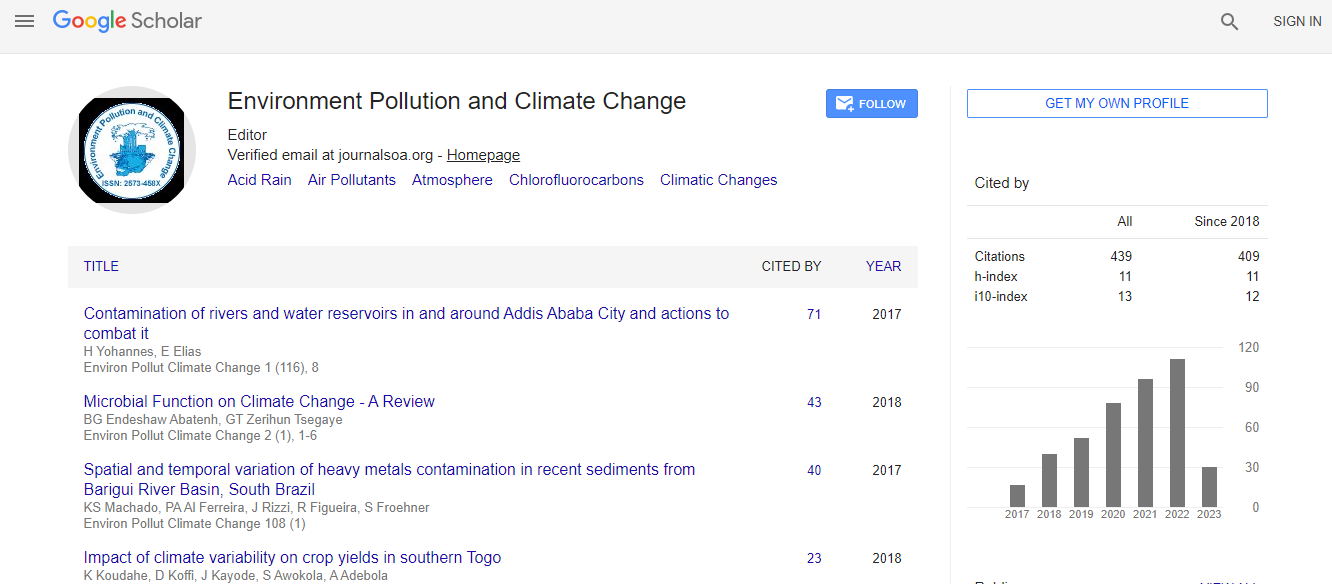Research Article
Urban Pollution Increases Sensitivity to Temperature Changes in Elliptio complanata Mussels Exposed to Municipal Wastewaters
Chantale André, Joëlle Auclair and J François Gagné*
Aquatic Contaminants Research Division, Environment and Climate Change Canada, Montreal, QC, Canada
- *Corresponding Author:
- Francois Gagné
Aquatic Contaminants Research Division
Environment and Climate Change Canada
105 McGill, Montreal, QC, Canada, H2Y 2E7
Tel: 514 496 7105
E-mail: francois.gagne@canada.ca
Received date: March 28, 2017; Accepted date: April 10, 2017; Published date: April 17, 2017
Citation: André C, Auclair J, Gagné JF (2017) Urban Pollution Increases Sensitivity to Temperature Changes in Elliptio complanata Mussels Exposed to Municipal Wastewaters. Environ Pollut Climate Change 1:122
Copyright: © 2017 André C, et al. This is an open-access article distributed under the terms of the Creative Commons Attribution License, which permits unrestricted use, distribution, and reproduction in any medium, provided the original author and source are credited.
Abstract
The cumulative effects of pollution in the context of global warming are not well understood at the present time. The purpose of this study was to determine whether organisms exposed to urban pollution are more susceptible to temperature changes. Feral Elliptio complanata freshwater mussels were caged and immersed for 1, 12 and 24 days in the final aeration pond treating domestic wastewaters from a township with a population of about 25,000. Mussels were also placed in the river upstream from the township to serve as reference. Following each exposure times, mussels were collected for temperature-dependent mitochondrial electron transport (METT) activity assessments. Other biomarkers were used, including xenobiotic metabolism (cytochrome P4503A4, glutathione S-tranferase and metallothioneins), energy budget (MET at 20ºC and total lipids) and gonad status endpoints (gonadosomatic index [GSI], lipid peroxidation [LPO] and vitellogenin-like proteins). The data revealed that mussels exposed to the aeration pond had elevated METT and MET activities, suggesting that they were more sensitive to temperature changes and spent more energy than the controls. METT activity was negatively correlated with lipid stores in gonad, pointing to a negative energy budget. METT activity was also influenced by all xenobiotic metabolism and gonad status markers, with the exception of GSI. This suggests that temperature sensitivity is increased in mussels exposed to urban pollution and involves the expression of xenobiotic biotransformation, oxidative stress and endocrine disruption.

 Spanish
Spanish  Chinese
Chinese  Russian
Russian  German
German  French
French  Japanese
Japanese  Portuguese
Portuguese  Hindi
Hindi 
